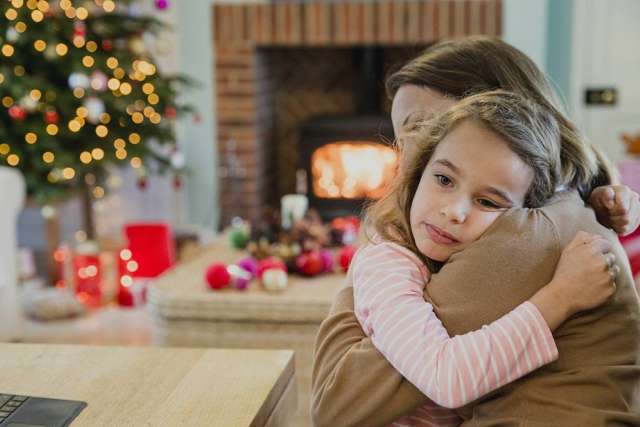The holiday season is usually a time of gathering and traditions. But the ongoing COVID-19 pandemic may have families celebrating in very different ways this year. While you can recognize these adjustments as temporary, your child may struggle to cope with changes to their usual holiday traditions.
According to the Centers for Disease Control and Prevention (CDC), one of the best ways to help a child through a stressful situation is to be prepared. Having a plan and knowing the signs of emotional distress will help you provide a joyful holiday season and a positive experience for your child.
Preparing your child for the holidays during the pandemic
For children, one of the biggest challenges of living with the pandemic has been the feeling of uncertainty. Having a plan in place provides the entire family with a vision for the holidays. They’ll know what to expect and have something special to look forward to. Here are some tips for creating that plan:
1. Listen and validate your child’s feelings
Before introducing any big changes, have your kids talk about their feelings. Listen closely and let your children know it is okay to be upset and disappointed. Share your thoughts and some ways that you deal with stresses and disappointment. Knowing they are not alone in their feelings will promote a sense of safety and security.
2. Embrace changes brought on by the pandemic
Children often take their cues from the adults around them. If you are calm and confident about the holiday changes, your children will be reassured. While your kids may initially focus on what they can’t do this month, remind them of new opportunities that arise from these changes. With fewer social commitments and less travel, your family can enjoy more time together and new seasonal activities.
3. Involve your children in creating new traditions
Give your children a sense of control by letting them suggest and choose new holiday activities. Your son may have always wanted to build a gingerbread house. Your teen may enjoy planning and throwing a virtual gift exchange with friends or family. Keep the traditions realistic, and give everyone a chance to contribute. Don’t forget to suggest a new holiday activity that excites you too.
4. Continue regular routines and healthy habits
Routines can play an important role in your child’s mental health. They provide a sense of focus, control and accomplishment. They also serve as a way for you to monitor your child’s well-being. If your child isn’t sticking to his or her usual routine, it may be a red flag that something is wrong. To rule out physical issues, encourage daily exercise, healthy meals and consistent bedtimes.
5. Encourage gratitude and giving
Studies show that being thankful can enhance positive emotions, promote optimism, improve sleep and minimize depression. Weave gratitude into your family’s holiday plan through thank-you notes or focused conversations during dinner or at bedtime. Remind your children that not everyone is as fortunate this holiday season. Challenge them to find ways to give to others in need.
Symptoms of stress in children and teens
Children and teens may react differently to stress depending on their age, gender and personality. According to the CDC, common changes to watch for include:
- Avoidance or lack of interest in usual activities
- Difficulty with concentration or attention
- Excessive worry or sadness
- Regression to previous behaviors such as toileting accidents, bedwetting, thumb sucking
- Sudden, noticeable change in eating or sleeping habits
- Unexplained headaches or body aches
- Unusual irritability, crying (younger children) or “acting out” (older children)
When to seek help for your child’s mental health
If your child is showing unusual behavior or symptoms of distress for more than 2 weeks, it may be time to ask for assistance. If you are worried that your child may hurt themselves or someone else, get help immediately. Your child’s primary care provider can identify or rule out any health problems or medications causing emotional changes. If needed, they can also put you in touch with professionals who specialize in children’s mental health.
If you have concerns about your child’s mental health, reach out to your child’s primary care provider.



